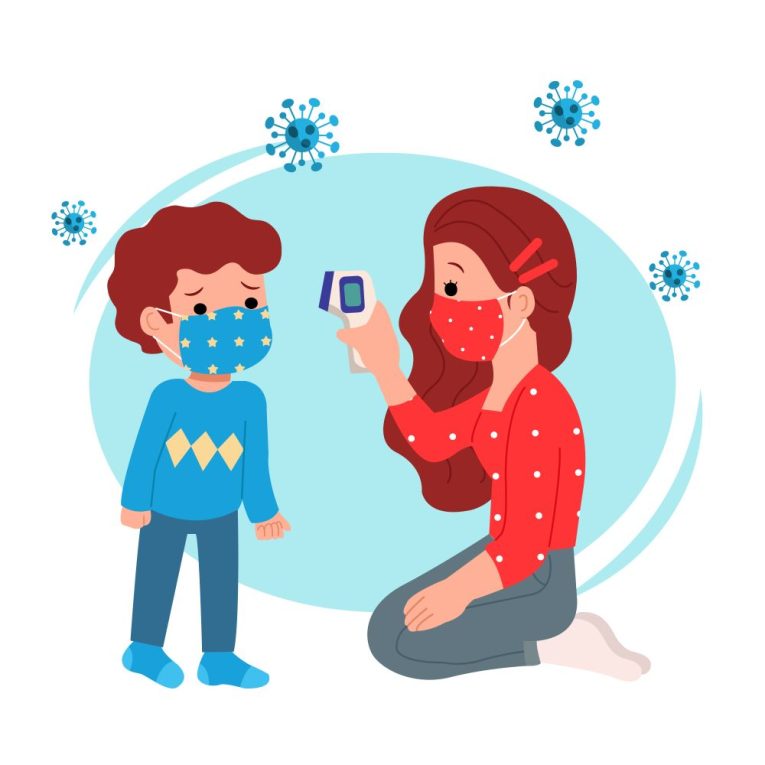As seasons change and viral infections become more rampant, children are often the most affected. Their developing immune systems, exposure at schools or play areas, and tendency to ignore early symptoms make them highly vulnerable to viral fevers. As a parent, it’s natural to worry—but with the right information and care, you can protect your child effectively.
This comprehensive guide outlines how to prevent viral fevers in children, recognize early symptoms, manage mild cases at home, and know when to consult a doctor.
Understanding Viral Fever in Children
Viral fever is a general term used to describe a rise in body temperature due to a viral infection. It may be accompanied by other symptoms such as chills, fatigue, sore throat, runny nose, cough, headache, and body aches. In children, fevers are often a sign that their immune system is fighting off a virus.
Common Causes of Viral Fever in Children:
- Influenza (flu)
- Common cold viruses (rhinovirus, adenovirus)
- Hand, foot, and mouth disease
- COVID-19
- Dengue and chikungunya (in tropical regions)
- Gastrointestinal viruses (like rotavirus)
Viral fevers are typically not dangerous and resolve in 3–7 days, but preventive steps can significantly reduce the chances of infection.
Why Children Are More Susceptible
Children are more prone to catching viral infections due to several reasons:
- Immature immune systems that are still learning to fight viruses
- Close contact with other kids at school or daycare
- Poor hygiene practices like touching their faces frequently
- Lower awareness about the importance of handwashing and covering their mouths when coughing or sneezing.
Because of these factors, prevention needs to be proactive, especially during viral outbreaks.
Effective Tips to Protect Children from Viral Fever
1. Boost Their Immunity Naturally
A strong immune system can make all the difference in fighting off infections. Ensure your child:
- Eats a balanced diet rich in fruits, vegetables, proteins, and whole grains
- Gets enough sleep (8–10 hours depending on age)
- Stays physically active with daily playtime or exercise
- Takes multivitamins if recommended by your pediatrician
Foods that help boost immunity include:
- Citrus fruits (Vitamin C)
- Yogurt (probiotics)
- Almonds and sunflower seeds (Vitamin E)
- Spinach and carrots (Vitamin A and antioxidants)
2. Encourage Proper Hand Hygiene
Handwashing is one of the simplest yet most effective ways to prevent the spread of viruses.
Teach your child to:
- Wash hands with soap and water for at least 20 seconds
- Use hand sanitizer if soap isn’t available
- Avoid touching their face, especially eyes, nose, and mouth
Make it fun with songs or games to instill the habit.
3. Avoid Crowded and Enclosed Spaces During Outbreaks
During viral season or known outbreaks:
- Avoid malls, indoor play areas, or public transport with your child
- Opt for open-air parks instead of enclosed areas
- Postpone unnecessary travel, especially to high-risk regions
4. Maintain Clean Surroundings
Cleanliness at home can prevent the transmission of viruses:
- Regularly disinfect toys, doorknobs, remotes, and commonly touched surfaces
- Wash bed linens and school uniforms frequently
- Ensure proper ventilation in your child’s room
5. Keep Children Hydrated
Water helps flush out toxins and keeps the body cool during a fever. Encourage:
- Frequent water intake
- Fresh juices like lemon or orange (not overly sweetened)
- Coconut water or oral rehydration solutions (ORS), especially in hot climates
Hydration helps in both prevention and faster recovery if infected.
6. Dress Them Appropriately
Overdressing children in warm weather can lead to overheating, while underdressing during winters increases susceptibility to colds.
Follow seasonal clothing suggestions and layer lightly so they can remove/add clothing easily.
7. Avoid Sharing Personal Items
Children often share lunch boxes, bottles, napkins, and toys. Teach them:
- Not to share water bottles or utensils
- To use their own handkerchiefs and towels
- To report to the teacher if a classmate is visibly sick
Vaccination: Your Best Preventive Weapon
Make sure your child is up-to-date with:
- Routine childhood immunizations
- Annual influenza vaccine
- COVID-19 vaccine (if eligible)
Vaccinations not only protect your child but also prevent community spread of viruses.

